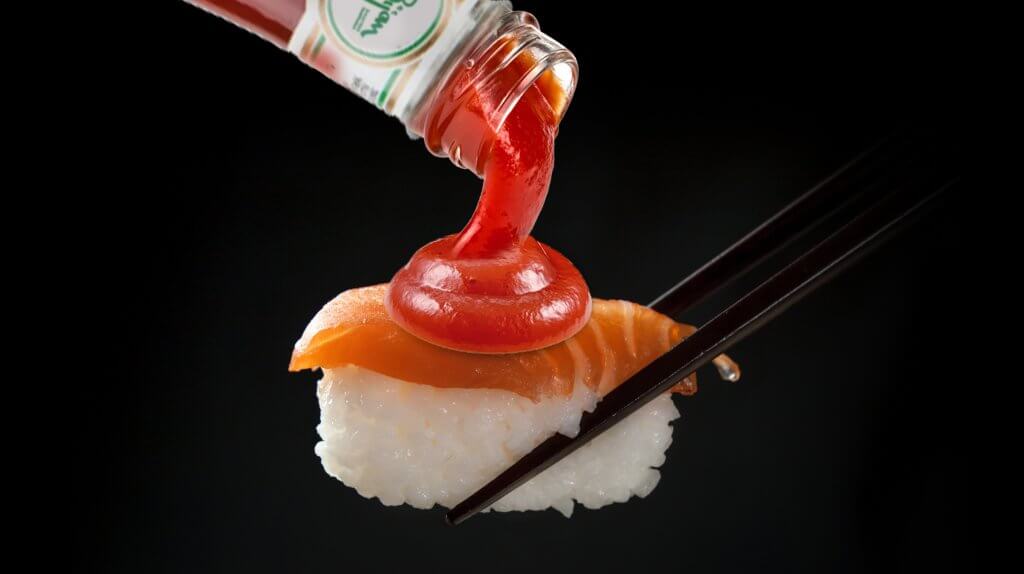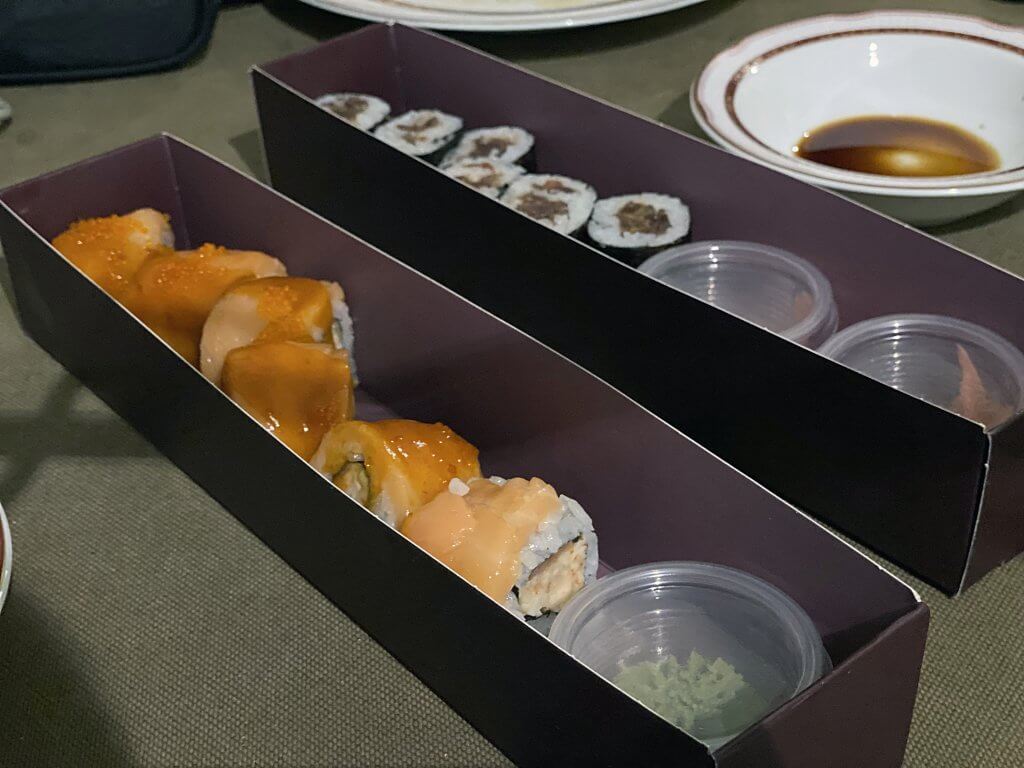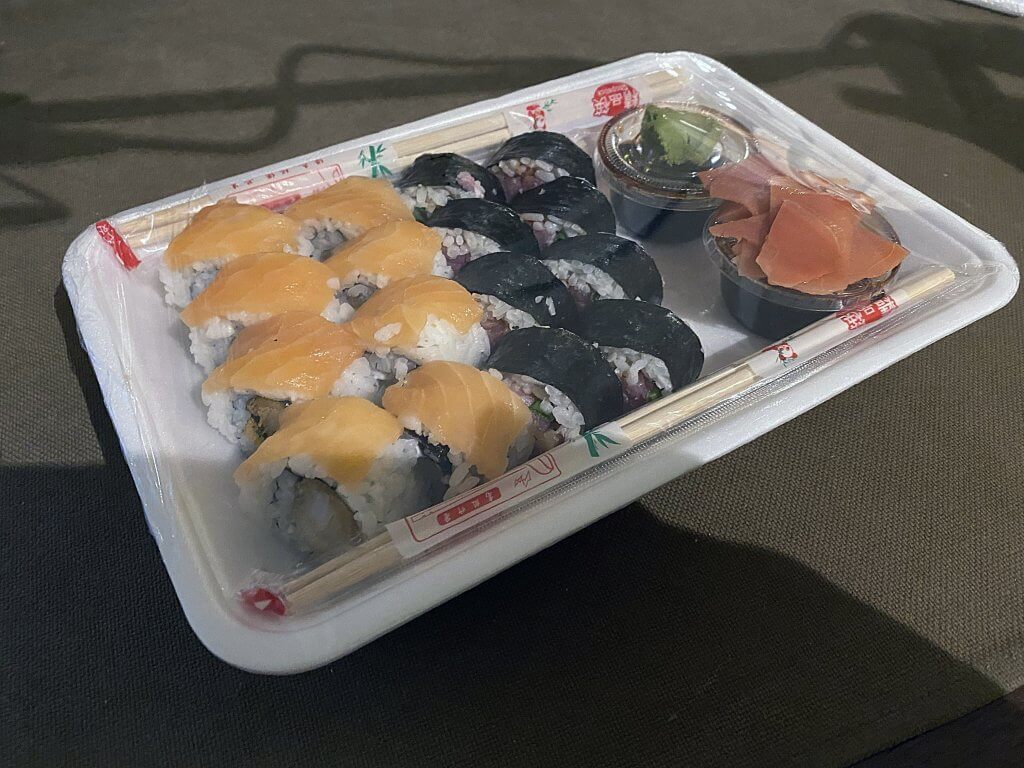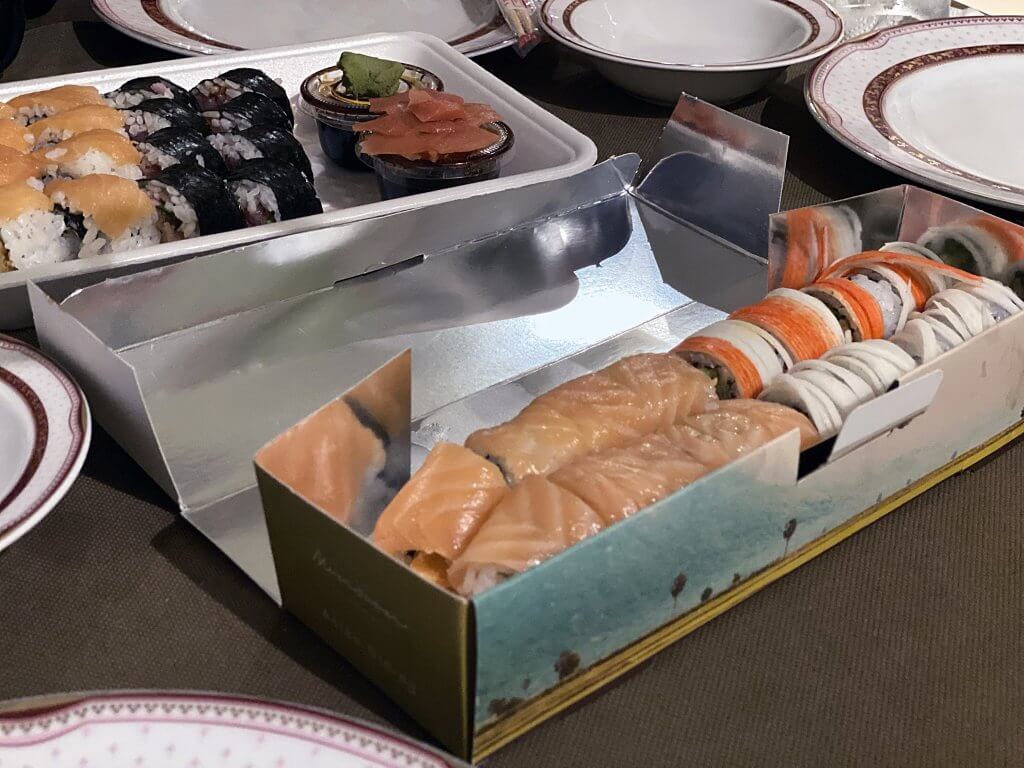
In this episode, we were delighted to be joined by Mr Yoshioka, a Japanese expat currently living and working in Iran. Against his better judgement, we wanted to sit, eat Iranian-made sushi, and chat about his experience of living and working in Iran. For this taste test, we ordered from three of Tehran’s better-known sushi restaurants and had Mr Yoshioka give his opinion on their respective packaging and authenticity. So what exactly do Japanese people think of Iranian-made sushi, listen in to find out.
We also get answer to the following questions…
- What do Japanese people think of Iran and Iranians?
- Are there Japanese restaurants in Iran?
- What types of sushi do Japanese people normally eat?
- Which restaurant makes the best sushi in Tehran, Iran?
- What do the names for different types of sushi, such as ‘maki’, ‘hoso’, ‘nigiri’ and ‘sashimi’ translate as?
- How should I hold chopsticks?
- What does Iranian mukbang sound like?
- How much soy sauce is too much soy sauce?
- Which type of doogh (Iranian yoghurt drink) is better, fizzy or still?
- What do Japanese people think about Iranian-made sushi?
Where can you order Iranian-made sushi from in Tehran
There are several places that you can order sushi from in Tehran, but we only ordered from three locations. We also tried ordering from Sushi Shop, during their opening hours but were not able to get through.
Kenzo Restaurant (رستوران کنزو), Tehran

We ordered the following items from Kenzo and they took about 1 hour and 40 minutes to be delivered (they were overloaded with orders we were told):
• Spicy Tuna (6 pcs) – 90,000 Tomans
(nearly $4 USD at time of publishing)
• Salmon Delight (6 pcs) – 125,000 Tomans
(around $5.50 USD at time of publishing)
Vanak Star (ستاره ونک), Tehran

We ordered the following items from Vanak Star and they took about 25 minutes to be delivered:
• Salmon (8 pcs) – 70,000 Tomans
(just over $3 USD at time of publishing)
• Tuna (8 pcs)- 70,000 Tomans
(just over $3 USD at time of publishing)
Monsoon Lounge (مانسون لانژ), Tehran

We ordered the following items from Monsoon Lounge and they took about 35 minutes to be delivered:
• Dragon Roll (8 pcs) – 150,000 Tomans
(just over $6.50 USD at time of publishing)
• Salmon Avocado (8 pcs) – 150,000 Tomans
(just over $6.50 USD at time of publishing)
Which sushi did our Japanese expat guest like the most
We didn’t expect that our Japanese guest would have anything bad to say about the Iranian-made sushi we had together, because… Japanese people. We did however try very hard to read Mr Yoshioka’s body language when we grilled him about which was the winner. We were able to deduce that, “you get what you pay for”. We assume that the order by which he liked the sushi is as listed below, although the difference seems to be very little:
- Monsoon Lounge: he seemed genuinely impressed with the sushi
- Kenzo Restaurant: he seemed pleasantly surprised with the tastes
- Vanak Star: he seemed impressed with the freshness of the fish
Expat life in Iran
There are many different nationalities living and working in Iran as expats. It will not be uncommon to see Chinese and various European expats in Iran. Our good friends at ‘Living In Tehran‘ have a wide variety of articles, written in English, to be able to help expats in Iran.
Have you eaten sushi in Iran?
Help us and our audience out by giving your thoughts! If you’ve eaten sushi in Iran, tell us what you think; tell us where’s good to go; tell whether you agree with our thoughts above! Either write your comments below or go to our related Ask An Iranian social media post and add your comment. If you are also Japanese and have tried Iranian-made sushi in Iran… you definitely need to leave a comment below.
Persian (Farsi) words used during the show
| Persian (Farsi) words | English translation |
|---|---|
| Barbari: | A type of flat-bread loved by Iranians |
| Sangak: | A type of flat-bread, baked on pebbles |
| Naan: | “Bread” – the Persian word for bread |
| Kale paache: | “Head and feet” – a dish of sheep head and trotters |
| Jolbak: | “seaweed” |
| Ya khoda: | “Oh my god!” – a Persian exclamation |
| Khaste nabashi: | “Don’t be tired” – term of recognition for a person’s effort |
| Befarmaeid: | “Please, after you” – a Persian term |
| Tashakor: | “Thanks” – a Persian word originating from Arabic |
Photo credits: source image by Kelvin Zyteng, edited by Ask An Iranian. Music credit: “Cherry Blossom” – Ancient traditional samurai koto music.
